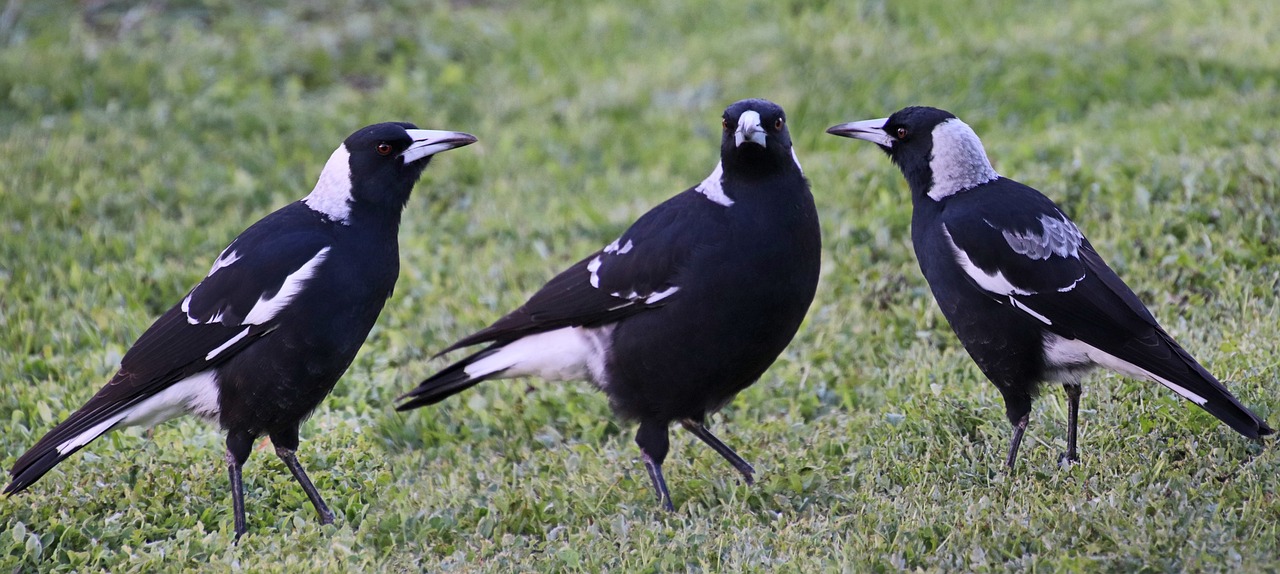News release
From:
Fight smarter, not harder – Magpies on the receiving end of aggressive behaviour perform better in cognitive tests. Social interactions in a group of Western Australian magpies were monitored throughout the non-breeding season. Magpies subjected to more aggressive interactions performed better in an associative learning task, where individuals learnt to associate a colour with a food reward. These findings may support the ‘necessity drives innovation’ hypothesis, where individuals will invest more in finding solutions to new problems if they are unable to monopolise resources. Proceedings B
Aggressive interactions influence cognitive performance in Western Australian magpies
Sociality is considered a key factor behind the evolution of cognition. However, exactly which aspects of sociality are important remain unclear. We explored which social factors are related to cognitive performance in wild magpies. We measured social connectedness using multiple interaction types and quantified cognitive performance using an associative learning test. We found that social network measures were better predictors of cognition than group size. Specifically, individuals receiving aggressive interactions performed better, while those involved in aggressive interactions with more group members performed worse. Our findings emphasise the importance of considering social interactions beyond group size when exploring a sociality-cognition relationship.



 Australia; NSW; WA
Australia; NSW; WA



